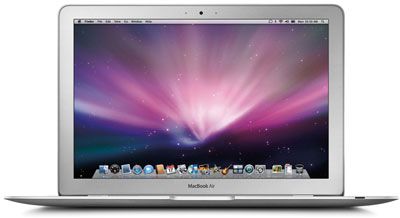- Qualcomm Launches Snapdragon 4 Gen 2 Mobile Platform
- AMD Launches Ryzen PRO 7000 Series Mobile & Desktop Platform
- Intel Launches Sleek Single-Slot Arc Pro A60 Workstation Graphics Card
- NVIDIA Announces Latest Ada Lovelace Additions: GeForce RTX 4060 Ti & RTX 4060
- Maxon Redshift With AMD Radeon GPU Rendering Support Now Available
Are We Soon to See a Death of the Spec?
At Techgage, we deal a lot with product specs. Gigabytes, RPMs, DPI, resolution, IOPS, megahertz, cores, bits and so on. For a lot of people, these things matter. A 7200 RPM hard drive is going to perform better than a 5400 RPM one, and a CPU with 6 cores is likely to be more capable than one with 4. But regardless of that – is a “death of the spec” imminent?
It seems so, if TechCrunch’s MG Siegler is to be believed. His claim is that consumers today don’t care about specs. They care about the user experience, ecosystems and various things like that. For the most part, I don’t disagree. There’s a reason that the MacBook Air accounts for almost one-third of Apple’s notebook shipments. Most consumers on-the-go don’t need insane performance. The need capable performance, and in today’s computing realm, we seem to have reached the appropriate performance threshold long ago.

Do people who purchase the latest iPhone care what’s under the hood compared to the previous one? Chances are, no. They’d rather know what it can do that the old one can’t. That seems fair, but Siegler’s entire post seems to focus on mobile in general, not every other market where people do need to know what’s better specs-wise from one product to the next. Sometimes it is quite as easy as seeing “what’s on paper”.
Intel this week released its Sandy Bridge-E processors. Our review is a bit tardy, but once posted, you’ll see many specs within. Why? Because they matter. A graphics card with more cores and higher clock-speeds matters because it gives the gamer an idea of what’s possible with it. Of course, our metric charts obviously help put everything into perspective, but it’s not difficult to understand that one card with 500 cores will be considerably slower than one with 800.
An interesting take-away point from the article however has to do with the Nook Tablet vs. Amazon Kindle Fire. While the Nook has better overall specs (though with nothing major), the Kindle Fire will sell far more units. Why? Because Amazon offers a better overall ecosystem, and people trust the company. When reading books or watching videos, 1GB of RAM vs. 512MB is just not going to matter.
But outside of simple mobile computing, I don’t see specs becoming less important anytime soon.




